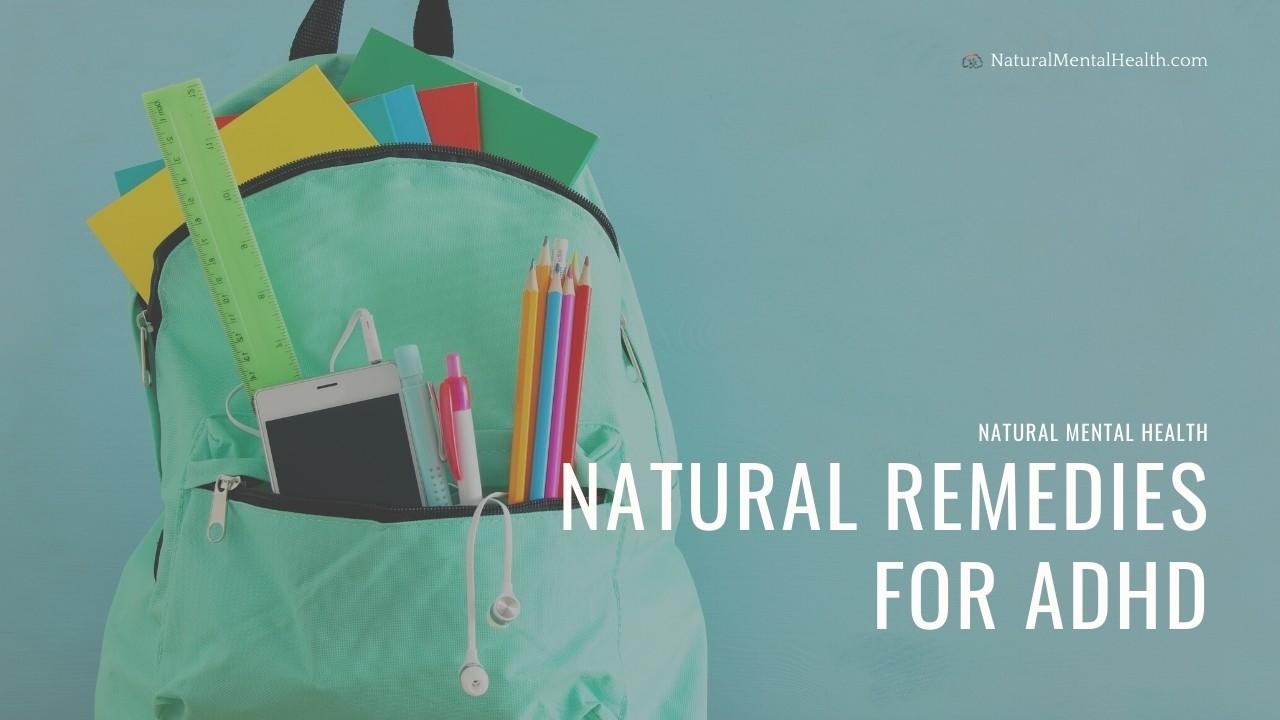
Natural Remedies for ADHD
Feb 26, 2020Timothy Culbert, MD, IFMCP
Are US Kids Worse Off?
11% of US children have an ADHD diagnosis. In France, the prevalence of an ADHD diagnosis is 0.5%. Part of this spread has to do with the US health care system's practice of readily pathologizing children's behaviors. Many behaviors may just be normal developmental variations or reflect behaviors brought on by stress, trauma, learning style issues, chaotic family situations, inadequate educational environments, or suboptimal lifestyle practices.
Kids Are Not to Blame
There are many reasons for the difference in ADHD rates between kids in the US and France. One key reason has to do with the US mental health care system.
Over the past few decades, psychiatry has become more biologically-based causing pharmaceutical companies and the field of psychiatry to focus almost exclusively on the "neurotransmitter deficiency model" of mental illness. For example, biologically based studies on ADHD suggest that low levels of dopamine and norepinephrine are to blame for the core symptoms of inattention, impulsivity, and restlessness. This led to the development of the class of NDRI medications (norepinephrine dopamine reuptake inhibitors) we know as stimulant medications. As holistic (integrative and functional) models of mental health evolve, we now understand that many factors beyond neurotransmitter deficiencies contribute to core ADHD symptoms.
Pathologize, Label, Medicate
Another reason for the high US rates include the intolerance of typical childhood behaviors in many public school settings. It's a problem that sets up a cycle of pathologize, label, and medicate.
Here's how the cycle works:
If a child cannot sit still and listen for 6 hours a day in [boring] lectures, we assume they must have a disorder such as ADHD. The schools and mental health system then work to diagnose the child- they must have a label!
Schools often then use the label to create support plans, like a 504 accommodation plan. Those can be helpful. Health care professionals use the label to identify a treatable condition for insurance reimbursement.
Pharmaceutical companies then use direct-to-consumer advertising strategies to capitalize on labels and convince unwitting parents that the most effective and appropriate treatment is always a pill. Problem is, it's not.
The Good News: In my 25+ years of experience on the front lines of integrative mental health, I've seen a big shift in patient and parent preference for more natural strategies for ADHD. And many of the more natural treatments help tremendously.
I do use medications when necessary, but I try to be a minimalist. I always present other options as well. Regular aerobic exercise, adequate sleep, and a healthy diet are all essential starting points for the treatment of ADHD symptoms.
See books by Sanford Newmark, MD “ADHD Without Drugs”; James Greenblatt, MD “Finally Focused”; Kathi Kemper, MD “Mental Health Naturally” and Scott Shannon, MD “Mental Health For The Whole Child” for some good reviews of these options.
There are some key strategies I use in my practice as an integrative pediatrician. Click on the strategies below to learn more about each:
- The ATTEND Approach: Natural Support for ADHD: Many families are looking for more natural options to manage ADHD and attention issues (e.g., distractibility, impulsive behavior, disruptive behavior, restlessness, and hyperactivity). ATTEND is a pneumonic device to remember the six key strategies to consider.
- ADHD and Sleep (3 part series)
- CBD and Cannabis for ADHD: Learn whether CBD is right for you and your family.
- Foods that Help You Focus







